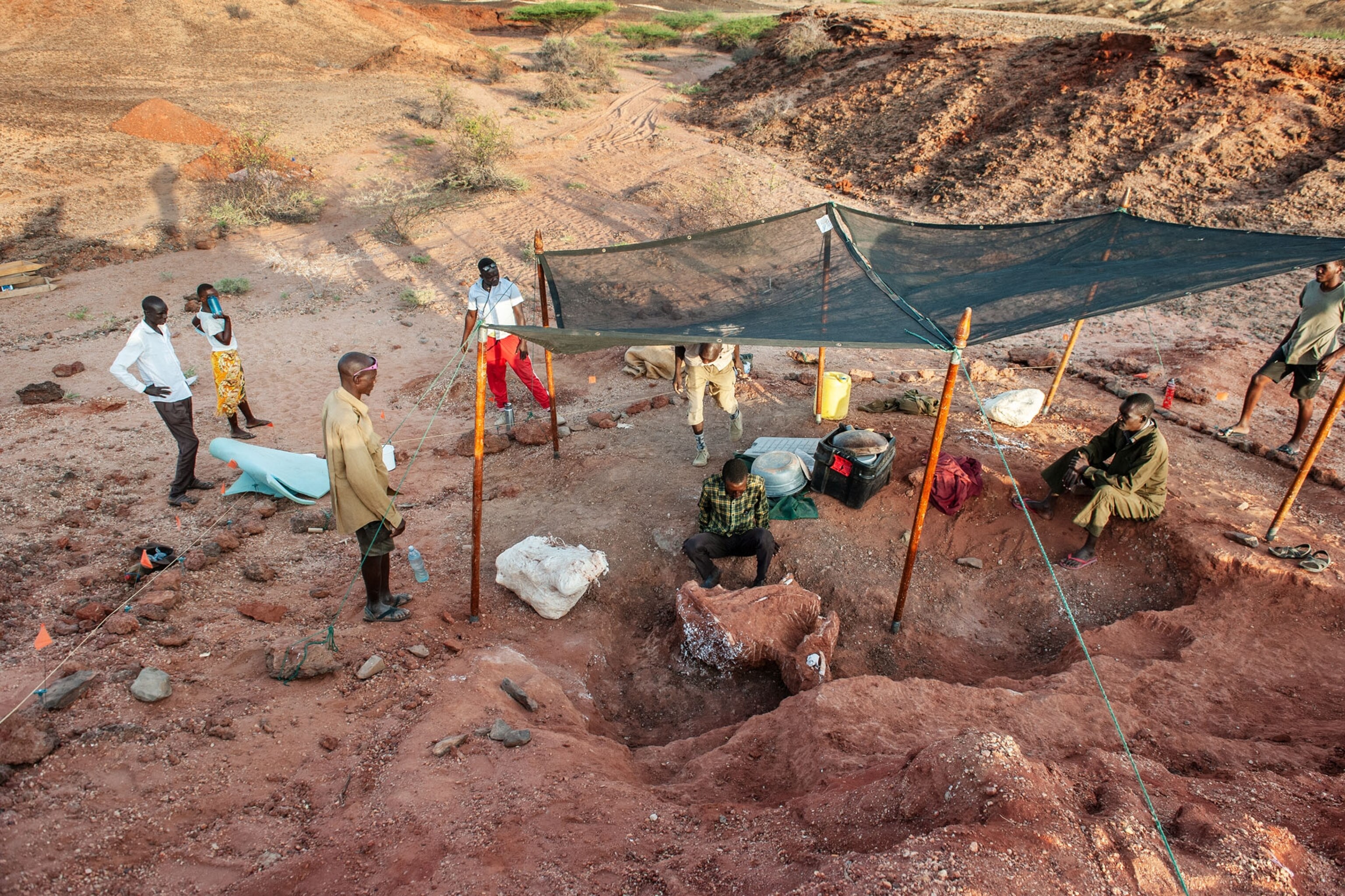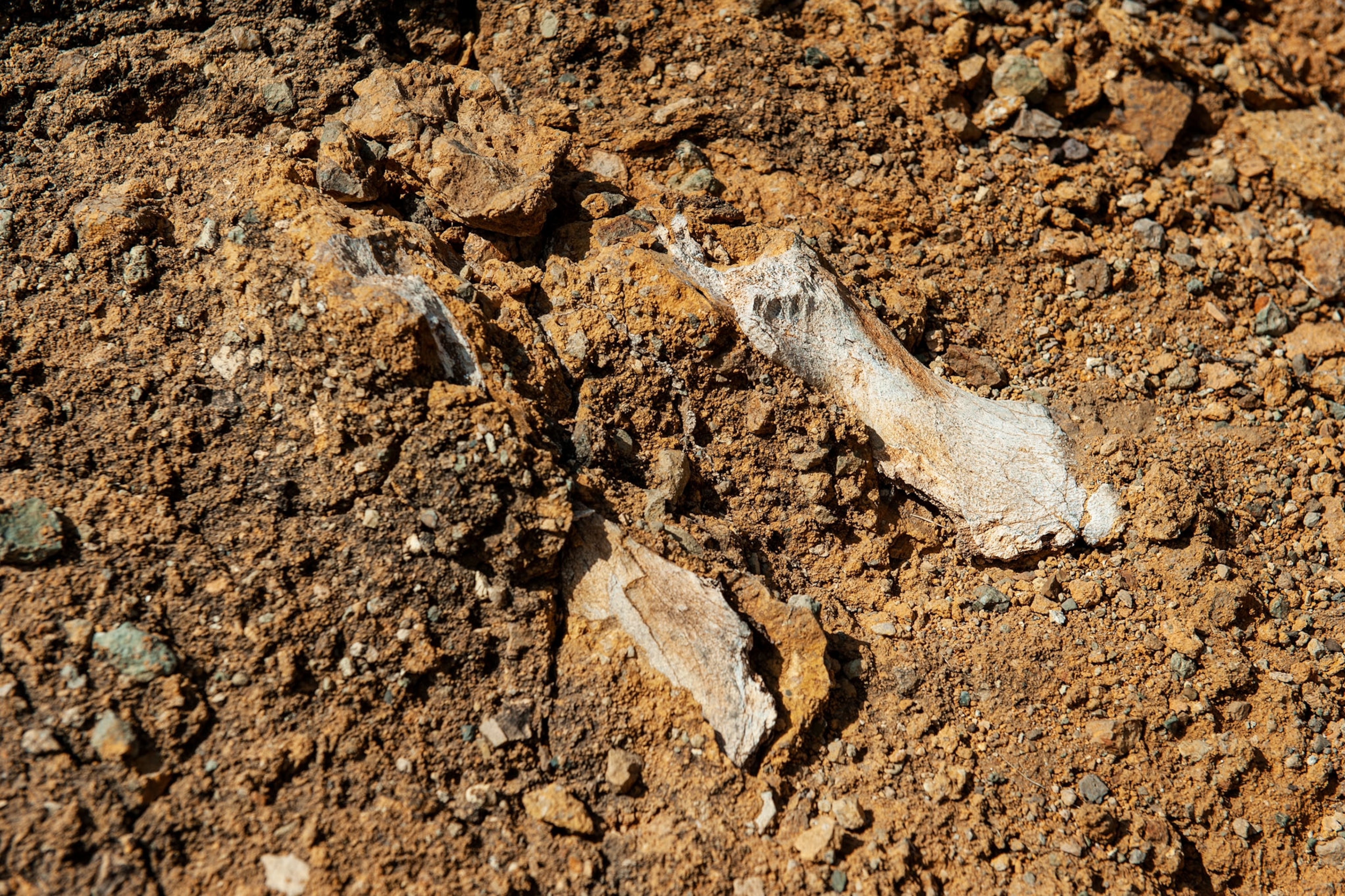
This Kenyan paleoanthropologist is digging deep to find our ancestors
One excavation at a time, Isaiah Nengo is building a fossil record of Africa’s early inhabitants—and sharing expertise with its present ones.
The death of anthropologist Isaiah Nengo was announced in a tweet from the Turkana Basin Institute, where he was associate director. This profile of Nengo, a National Geographic Explorer, appears in the February issue of National Geographic.
Nairobi-born Isaiah Nengo was in high school when he found his life’s work, on a trip to the National Museums of Kenya. A lecture that day by renowned paleoanthropologist Richard Leakey captivated Nengo. After college he volunteered there, and Leakey helped him get into a Ph.D. program at Harvard University.
Nengo began fieldwork in the mid-1980s in western Kenya, where the first fossil he excavated was the pelvis of a 17-million-year-old ape. “I didn’t know at the time just how lucky I was,” he says, laughing. In 2014 he led an expedition in Kenya’s Turkana Basin that discovered the most complete fossil skull of an ape ever found, a 13-million-year-old ancestor of today’s apes and humans. The team gave the skull’s owner the nickname Alesi, from the Turkana word for “ancestor.”





Nengo teaches at New York’s Stony Brook University and Kenya’s Turkana University College. He also runs a master’s program in human evolutionary biology that was launched at Turkana University in 2017. Aiming to build local expertise and research capacity, the program has admitted eight students so far, all Kenyans, six of them women. Nengo would like to add students from neighboring countries in future years. “Training Africans from East Africa is not charity,” he says. “It’s actually essential to the science.”
The National Geographic Society has funded the work of paleoanthropologist Isaiah Nengo since 2018. Learn more about its support of Explorers researching history and culture at natgeo.com/impact.
This story appears in the February 2022 issue of National Geographic magazine.
Related Topics
You May Also Like
Go Further
Animals
- This ‘saber-toothed’ salmon wasn’t quite what we thoughtThis ‘saber-toothed’ salmon wasn’t quite what we thought
- Why this rhino-zebra friendship makes perfect senseWhy this rhino-zebra friendship makes perfect sense
- When did bioluminescence evolve? It’s older than we thought.When did bioluminescence evolve? It’s older than we thought.
- Soy, skim … spider. Are any of these technically milk?Soy, skim … spider. Are any of these technically milk?
- This pristine piece of the Amazon shows nature’s resilienceThis pristine piece of the Amazon shows nature’s resilience
Environment
- This pristine piece of the Amazon shows nature’s resilienceThis pristine piece of the Amazon shows nature’s resilience
- Listen to 30 years of climate change transformed into haunting musicListen to 30 years of climate change transformed into haunting music
- This ancient society tried to stop El Niño—with child sacrificeThis ancient society tried to stop El Niño—with child sacrifice
- U.S. plans to clean its drinking water. What does that mean?U.S. plans to clean its drinking water. What does that mean?
History & Culture
- Séances at the White House? Why these first ladies turned to the occultSéances at the White House? Why these first ladies turned to the occult
- Gambling is everywhere now. When is that a problem?Gambling is everywhere now. When is that a problem?
- Beauty is pain—at least it was in 17th-century SpainBeauty is pain—at least it was in 17th-century Spain
- The real spies who inspired ‘The Ministry of Ungentlemanly Warfare’The real spies who inspired ‘The Ministry of Ungentlemanly Warfare’
- Heard of Zoroastrianism? The religion still has fervent followersHeard of Zoroastrianism? The religion still has fervent followers
Science
- Here's how astronomers found one of the rarest phenomenons in spaceHere's how astronomers found one of the rarest phenomenons in space
- Not an extrovert or introvert? There’s a word for that.Not an extrovert or introvert? There’s a word for that.
- NASA has a plan to clean up space junk—but is going green enough?NASA has a plan to clean up space junk—but is going green enough?
- Soy, skim … spider. Are any of these technically milk?Soy, skim … spider. Are any of these technically milk?
- Can aspirin help protect against colorectal cancers?Can aspirin help protect against colorectal cancers?
Travel
- What it's like to hike the Camino del Mayab in MexicoWhat it's like to hike the Camino del Mayab in Mexico
- Follow in the footsteps of Robin Hood in Sherwood ForestFollow in the footsteps of Robin Hood in Sherwood Forest
- This chef is taking Indian cuisine in a bold new directionThis chef is taking Indian cuisine in a bold new direction
- On the path of Latin America's greatest wildlife migrationOn the path of Latin America's greatest wildlife migration
- Everything you need to know about Everglades National ParkEverything you need to know about Everglades National Park




